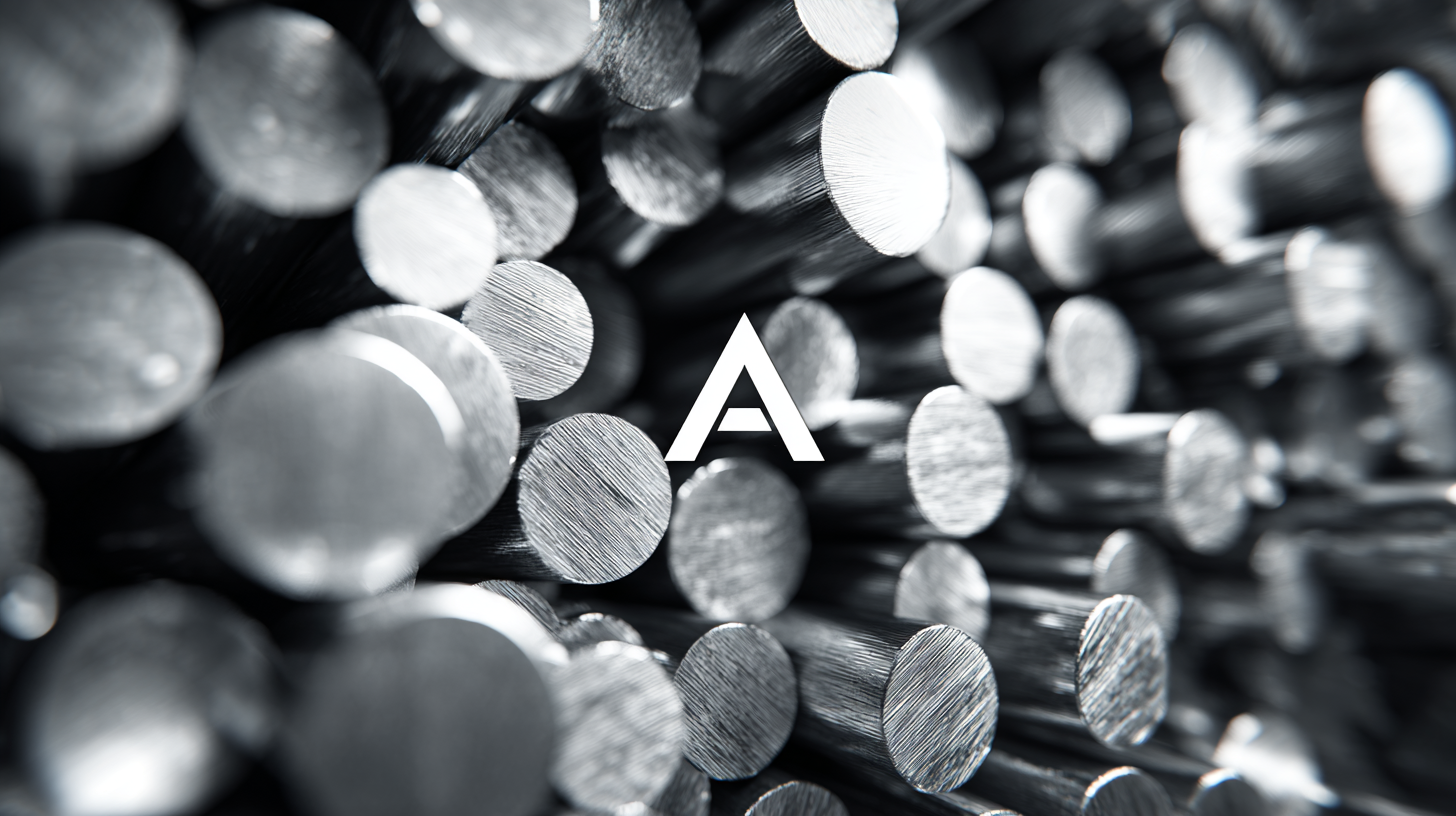
In the competitive landscape of material sourcing, understanding the technical specifications of metal alloys is crucial for global buyers, particularly those relying on a reputable metal alloy supplier. The demand for high-performance metal alloys continues to rise, with the global alloy market projected to reach approximately $167 billion by 2027, according to a recent market research report by Grand View Research. This growth is driven by advancements in various industries, including aerospace, automotive, and construction, which require materials that meet specific production standards and performance criteria. Buyers must navigate a complex array of alloy types, each tailored for unique applications and governed by international standards such as ASTM and ISO. By understanding these specifications, global buyers can make informed decisions that ensure quality and compliance, while optimizing supply chain efficiencies in an increasingly interconnected market.

When sourcing metal alloys on a global scale, identifying reliable suppliers is crucial for maintaining quality and ensuring project success. According to a report by the World Steel Association, the global production of alloy steel reached approximately 1.7 billion metric tons in 2022, underscoring the importance of established suppliers who can provide consistent quality. A reliable metal alloy supplier should demonstrate a robust quality assurance process, including certifications such as ISO 9001, which signifies a commitment to effective quality management systems.
Furthermore, understanding the technical specifications of alloys is critical in assessing supplier reliability. For instance, the International Alloy Standards Committee outlines specific compositions and performance characteristics crucial for various applications, from aerospace to automotive. Suppliers should provide clear documentation detailing the alloy grades and their respective mechanical properties, such as tensile strength and corrosion resistance, to help buyers make informed decisions. Leveraging supplier databases, like ThomasNet, can also assist global buyers in identifying suppliers with a proven track record in quality and compliance, establishing a pathway to successful partnerships.

In the realm of procurement and compliance, understanding supplier certifications and compliance standards is vital for global buyers, especially when dealing with top metal alloys. The Corporate Sustainability Due Diligence Directive emphasizes the need for procurement teams to uphold environmental and social standards, creating a new era of accountability and responsibility. As companies strive to meet these rigorous standards, a comprehensive assessment of suppliers’ certifications becomes paramount. According to recent industry data, 78% of procurement leaders consider supplier compliance a critical factor in their sourcing decisions, reflecting a significant shift towards sustainability and ethical responsibility in global supply chains.
Furthermore, the need for effective risk management in supplier networks cannot be overstated. Establishing vendor risk assessment frameworks enables companies to scrutinize their suppliers’ controls, ensuring redundancy and security within the supply chain. This is particularly essential as organizations navigate the complexities of compliance under shifting regulations and potential tariff increases. Reports indicate that firms with robust third-party risk management practices are 50% more likely to maintain operational continuity during supply chain disruptions. As a result, strategic assessments of supplier certifications and compliance standards are not just beneficial—they are essential for maintaining a competitive edge in the market.
In today’s competitive landscape, navigating supplier portfolios has become increasingly crucial for global buyers seeking to optimize their material choices, particularly in the metal alloys sector. Recent advancements, such as new material offerings from leading suppliers, underline the importance of staying informed about technical specifications. For instance, the implementation of additive manufacturing technologies allows for greater flexibility and innovation in material applications, which can significantly enhance product performance across various industries, including automotive and aerospace.
Furthermore, the energy sector is experiencing a pivotal shift towards sustainability, compelling oil and gas companies to re-evaluate their material sourcing strategies. Industry reports indicate that investments in lower-carbon technologies are essential for maintaining competitive advantage. A McKinsey report highlighted that companies leading the transition could see a potential market opportunity worth up to $1 trillion in renewables by 2030. As such, understanding the nuances of material specifications and the capabilities of suppliers becomes essential for manufacturers looking to thrive in this evolving marketplace. This necessity is heightened by strategic material dependency risks, prompting buyers to diversify their supplier portfolios and mitigate potential disruptions caused by policies regarding rare earth materials.
When sourcing metal alloys, it’s crucial to evaluate not just the technical specifications but also the supplier's customer service and support capabilities. A strong customer service framework ensures that buyers can easily communicate their needs and receive timely assistance. This becomes especially important in a global market where time zone differences can delay responses. Suppliers who prioritize customer support are more likely to foster long-term partnerships, facilitating smoother transactions and ensuring that any issues can be addressed promptly.
Moreover, effective customer service is indicative of a supplier's overall reliability. Buyers should look for suppliers that provide comprehensive resources, such as technical documentation, responsive customer inquiry channels, and knowledgeable personnel who can assist with product selection. An attentive support team can also offer valuable insights into material selection for specific applications, thus enhancing the buyer's decision-making process. In a competitive landscape, suppliers who invest in robust customer support not only enhance the buying experience but also differentiate themselves from competitors, making them more attractive to global buyers seeking reliable partnerships.
| Alloy Type | Chemical Composition | Mechanical Properties | Supplier Customer Support |
|---|---|---|---|
| Aluminium 6061 | Si 0.4-0.8%, Fe 0.7%, Cu 0.15-0.4%, Mg 0.8-1.2% | Yield Strength: 250 MPa, Tensile Strength: 310 MPa, Elongation: 12% | 24/7 Email and Phone Support, Live Chat Available |
| Stainless Steel 304 | Cr 18-20%, Ni 8-10.5%, C 0.08% max | Yield Strength: 215 MPa, Tensile Strength: 505 MPa, Hardness: 70 HRB | Dedicated Account Managers, Technical Assistance Available |
| Titanium Grade 5 | Ti 90.0%, Al 6.0%, V 4.0% | Yield Strength: 880 MPa, Tensile Strength: 950 MPa, Elongation: 14% | Global Reach, Fast Response Times, Regular Follow-ups |
| Nickel Alloy 625 | Ni 58%, Cr 20%, Mo 9%, Fe 5% | Yield Strength: 482 MPa, Tensile Strength: 756 MPa, Hardness: 95 HRB | Technical Resources Available, On-site Support Services |
Establishing long-term supplier relationships is crucial for global buyers in the metal alloys sector. A successful partnership can foster trust, streamline communication, and enhance the overall supply chain efficiency. To initiate this relationship, buyers should conduct thorough research to identify suppliers who not only meet their technical specifications but also align with their values and business objectives. Engaging with suppliers to understand their manufacturing processes, quality assurance protocols, and product innovations can further enhance collaboration.

Once a supplier is selected, maintaining open lines of communication is essential. Regular meetings and updates can strengthen the partnership and provide insights into potential challenges or changes in the market. It is also beneficial for buyers to provide feedback on products and services, encouraging suppliers to adapt and improve. Establishing clear expectations regarding delivery schedules, pricing structures, and quality standards will facilitate a transparent relationship that can withstand market fluctuations. By nurturing these connections, global buyers can secure a reliable supply of top-quality metal alloys while fostering innovation and growth within their collaborative networks.